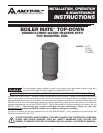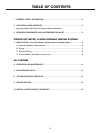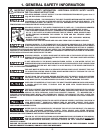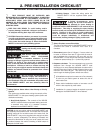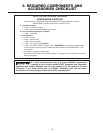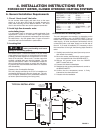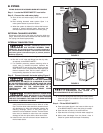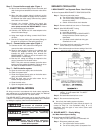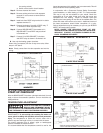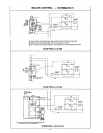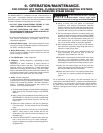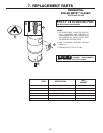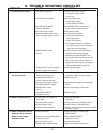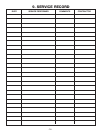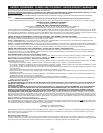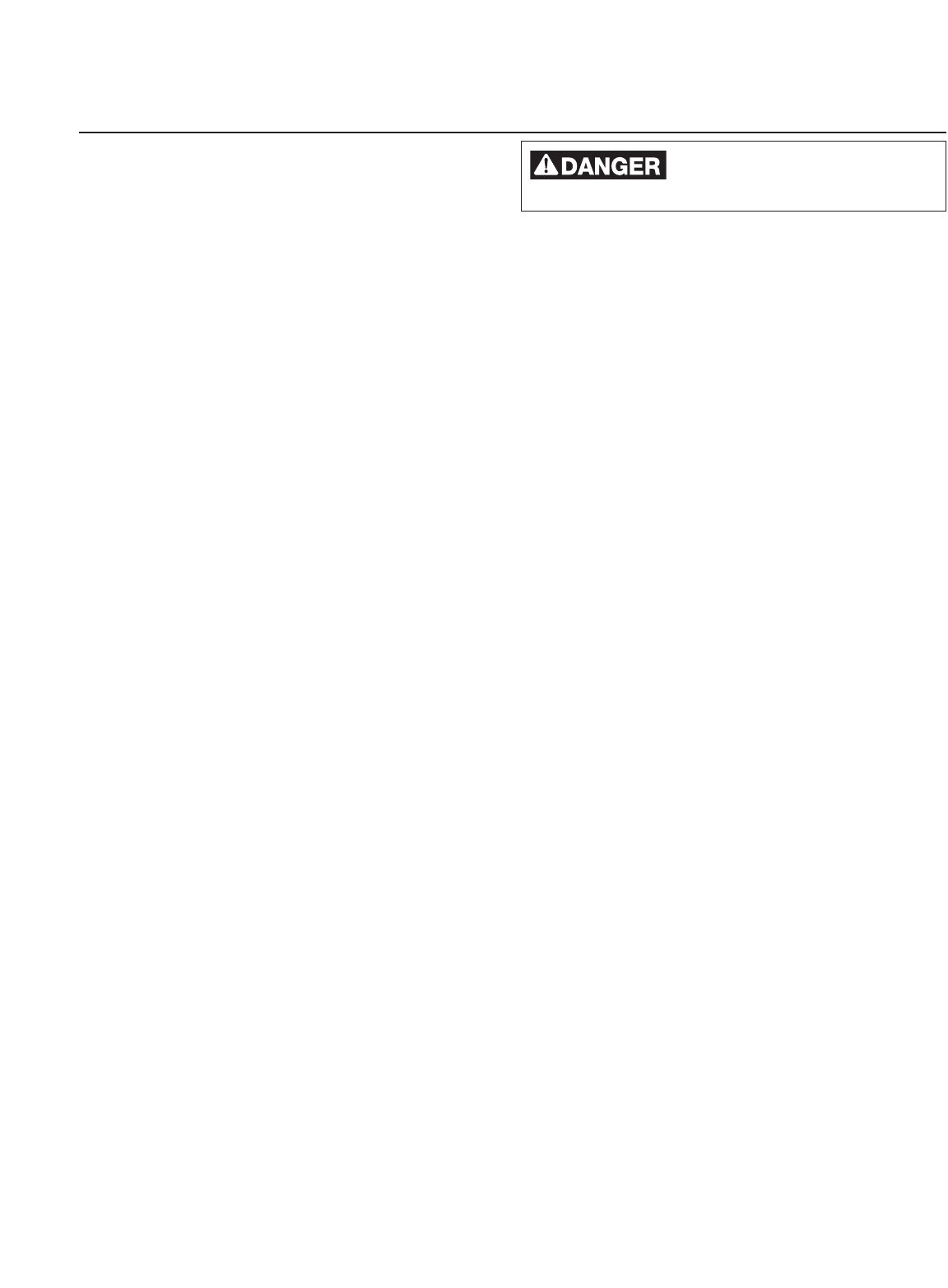
-11-
The BOILER MATE™ is intended to provide a tank service life of
many years. Components, however
, may be subject to failures
that require service. Failure to use the correct procedures or parts
in these circumstances may make the unit unsafe.
• DO NOT OPEN DOWN-STREAM FIXTURE IF YOU
HAVE LOOSENED THE TOP CONNECTIONS.
• DO NOT OVER-DRAIN THE TANK - THE HEAT
EXCHANGER MUST REMAIN COVERED BY WATER TO
AVOID DAMAGE TO THE LINER.
The owner should arrange to have the following inspections
and simple maintenance pr
ocedures done at the
frequencies suggested.
a. Domestic Water Piping - Yearly Visual Inspection Check
all piping for a signs of leakage at joints, unions and shut-
off valves. Remedy as needed.
b. Boiler Water Piping - yearly Visual Inspection Check all
piping for signs of leakage at joints, unions and shut-off
valves. remedy as needed.
c. T & P Relief Valve - Yearly Inspection
d. Sediment - Monthly Inspection - depending on water
conditions
Depending on water conditions, a varying amount of
sediment may collect in the tank. This is normal. Levels
requiring service are indicated by a small temperature
difference in the supply and return lines. (See also "Scale"
below.) Repeated flushing usually clears such material. As
a preventive measure, each month water should be drawn
from the tank at the drain valve until it runs clear.
e. Scale - Monthly Inspection
A small temperature difference between the water entering
and leaving the coil may indicate a scale build-up. A water
softener will prevent this problem. (See also "Sediment"
above.) Repeated flushing should also resolve the
problem. If not, proceed as follows:
1. T
o avoid water damage to nearby areas in subsequent
steps, shut off the cold water supply to the BOILER
MATE™.
2. Make a note of the temperatur
e contr
ol setting on the
BOILER MATE™, then turn the unit off by depressing
the key switch on the Smart Contr
ol™ until the unit
reads "OFF".
3. Relieve the water pressure in the tank by opening a
hot water faucet. This will reduce the risk of scalding
injury
.
4. Remove the relief valve from the top of the BOILER
MATE™, taking care to avoid contact with the hot
water which may drain out of the lines leading to the
domestic uses.
5. Drain the BOILER MATE™ until the water within the
tank is even with the top of the heat exchanger -
r
oughly 15 gallons for 41-gallon units and 5 gallons for
26-gallon units.
Do not over-drain the tank. Improper
thermostatic contr
ol could result
during Step 6 and lead to damage to the BOILER MA
TE™.
6.
Using a funnel, pour one gallon of commercial
phosphoric acid solution (commercial icemaker
cleaning solution) into the water tank through the top
opening. Be sure that the manufacturer’s directions,
cautions, and warning on the container are followed:
7. Set the temperatur
e control to its highest setting and
operate the system until the control is satisfied.
Note:
Boiler may cycle on its high limit several times during
this period. If the tank temperature setting has not
been satisfied after 45 minutes of boiler operation,
turn it to its lowest setting to stop boiler operation.
8. Allow heated solution to set in tank for 30 minutes.
then drain tank completely using fitting and hose, as
required, to reach a floor drain.
9. Fill water tank with fresh, cold, conditioned water and
drain completely at least two time to flush all
phosphoric acid mixture from the tank.
10.Reinstall the temperature pressure relief valve, being
sure the (1) the temperature pressure relief valve
temperature probe reaches into the top portion of the
tank and (2) the top half union fitting is firmly in place.
11.Open the cold water supply and fill the tank with
water. Then purge air from lines and tank by operating
hot and cold water faucets in the house.
12.Return the Smart Control
™
to the setting noted in Step
2 and verify it is working properly as described on
page 17.
As an alternative to the above, the heat exchanger may be
removed from the BOILER MATE™, cleaned, and reinstalled (with
a new gasket); or, in some cases, a simple high velocity washing
by water from a wand may be used in place of Steps 5-9. The
chemical cleaning pr
ocess, however
, is the most effective if done
properly.
6. OPERATION/MAINTENANCE.
FOR FORCED HOT WATER, CLOSED HYDRONIC HEATING SYSTEMS
AND LOW PRESSURE STEAM BOILER.



